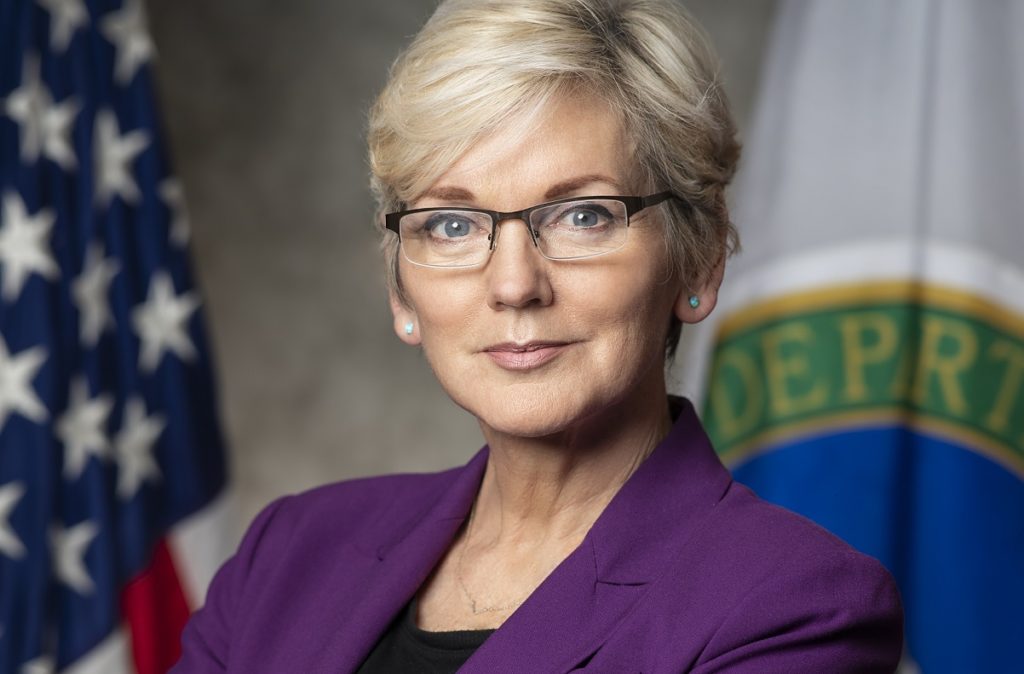
US Energy Secretary Jennifer Granholm has raised concerns about the country’s ability to move to a carbon pollution-free power sector by 2035 unless there is a quick resolution to the Department of Commerce’s (DOC) solar tariff investigation.
During a Senate Energy and Natural Resources Committee hearing last Thursday, Granholm was asked what is at stake for the US’s solar industry if the DOC’s investigation were to drag on for months or years.
Unlock unlimited access for 12 whole months of distinctive global analysis
Photovoltaics International is now included.
- Regular insight and analysis of the industry’s biggest developments
- In-depth interviews with the industry’s leading figures
- Unlimited digital access to the PV Tech Power journal catalogue
- Unlimited digital access to the Photovoltaics International journal catalogue
- Access to more than 1,000 technical papers
- Discounts on Solar Media’s portfolio of events, in-person and virtual
Or continue reading this article for free
“[What’s] at stake is the complete smothering of the investment, and the jobs, and the independence that we would be seeking as a nation to get our fuel from our own generation sources,” she said.
“I know it’s an adjudicative process that’s in the Department of Commerce and therefore it’s not in the Department of Energy’s purview, but I certainly am deeply concerned about being able to achieve the goal of getting to 100% clean electricity by 2035 if this is not resolved quickly.”
The DOC decided in March to investigate whether solar cells and modules assembled in Cambodia, Malaysia, Thailand and Vietnam are circumventing US anti-dumping and countervailing duty (AD/CVD) orders on cells and modules from China.
US solar developers are facing widespread module shipment cancellations and delays amid the threat of retroactive tariffs that could be set at 50 – 250% if the DOC does find evidence of circumvention.
With project development slowing, the Solar Energy Industries Association (SEIA) has found that the investigation will result in a drop of 24GW of planned US solar capacity in the next two years.
Responding to Granholm’s comments, Senator Martin Heinrich said he is hearing from manufacturers and installers about job losses and project cancellations. “It’s not up to any of us to tell Commerce how to resolve that process. However, if it’s not done really, really quickly, we are going to destroy an entire industry,” he said.
Heinrich was among a bipartisan group of 22 senators that earlier this month wrote to President Biden requesting that the administration quickly reviews the case. The letter, which can be read here, warned that expanded tariffs “would severely undercut the growth of the solar industry” and cost tens of thousands of American jobs.
Another signatory to the letter, Senator Mazie Hirono, said during last week’s hearing that solar projects “are coming to a screeching halt” as a result of the potential outcome of the investigation. She asked what resources the DOC could make available to address short-term impacts on solar projects and address longer term issues relating to the solar supply chain.
Granholm responded: “It does beg the question of building out the full supply chain for solar inside the United States so we don’t have to worry about the import issue.”
Granholm’s warnings about the impact on the US’s energy transition came as utility NiSource said it has pushed back the shutdown of some of its coal units because of solar project delays arising from the DOC’s tariff probe.
An industry-wide survey published last month by SEIA found that the prospect of the US achieving its climate goals “grows dimmer each day this investigation continues”.
